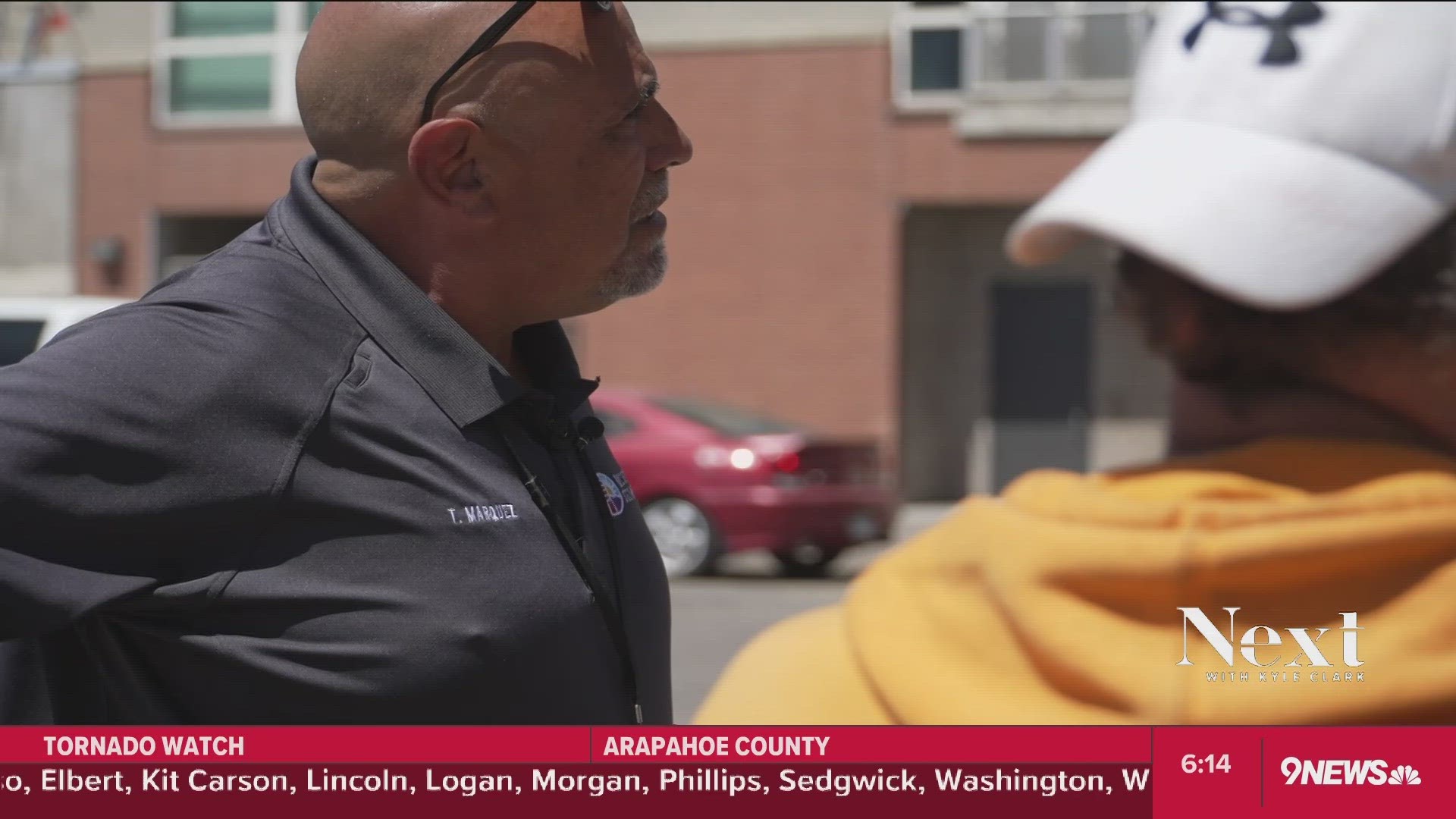DENVER — A team with the power to issue tickets to people violating Denver’s urban camping ban hasn’t given out any tickets since the program started.
Members of the city's Street Enforcement Team, or SET, say fining people living on the street isn’t the way to solve the city’s homeless problem. Instead, they talk to them and try to connect them with resources.
"Build that trust with them. Build that understanding. Build that relationship with them," said Tim Marquez, one of the members of SET. "That’s how you get compliance."
The team launched two years ago, giving the civilian team the power to enforce laws like the urban camping ban. That starts with getting people help.
From the team's launch on September 1, 2021, through this week, the group of 11 people have conducted outreach to 6,134 tents and RVs. No written warnings or citations have been issued to date.
"We want them to understand that there’s always a way out," said Armon Brown, another SET member. "If there’s a way out then we provide those types of resources for them."

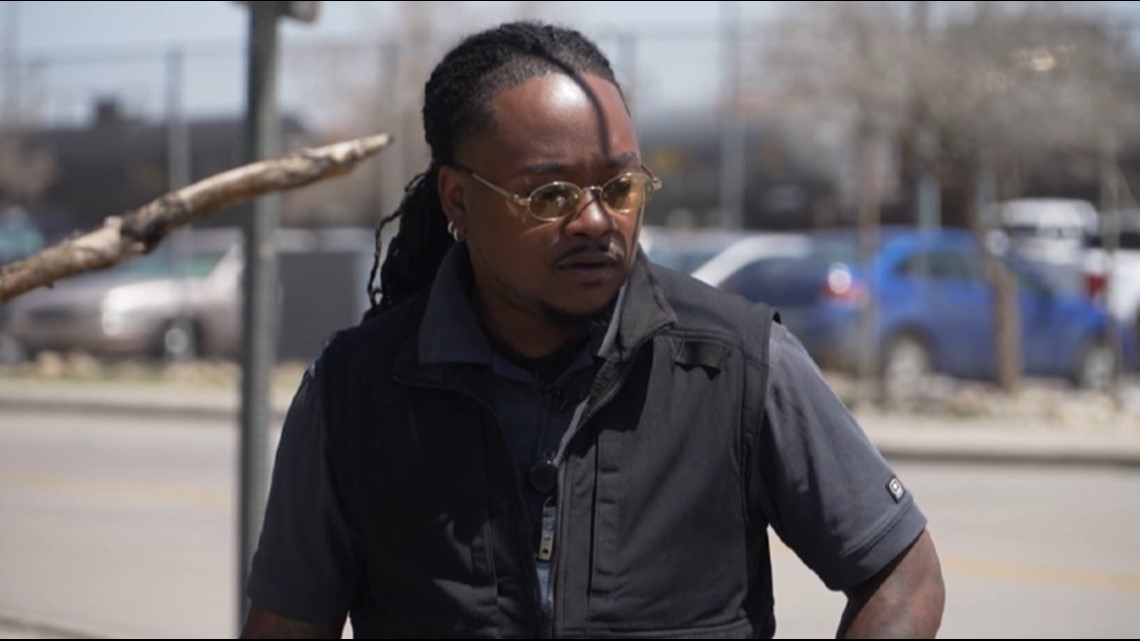
Brown, Marquez and the rest of the SET team have the power to write people tickets. But in their years on the streets and with thousands of interactions, no one on the team has issued a single citation because they say it won't help people with long term change.
"Our biggest tool that we use is how we talk to people and our voice in how we help deescalate a situation," said Marquez. "That’s somebody's mom, dad, son, daughter, nephew, friend. That’s what motivates us. They deserve that attention. They deserve that help."
At Park Avenue and Larimer Street, on the day 9NEWS joined them, the notice the SET team gives to pack up the tents blocking the sidewalk comes with referrals to resources and new clothes.

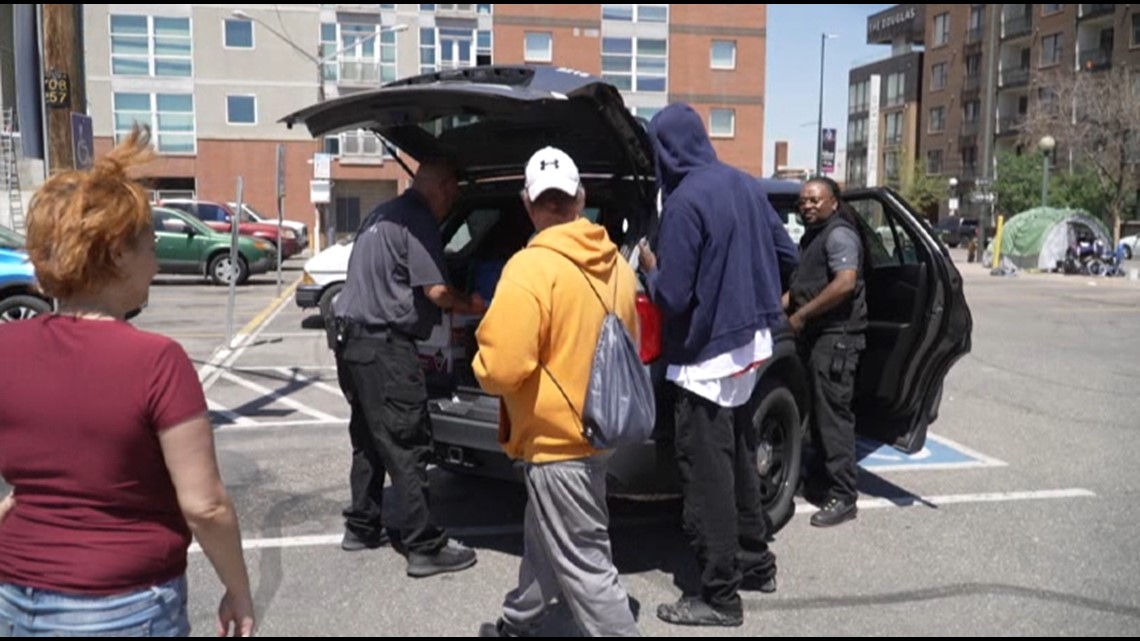
"How are y’all doing? I just want to talk to you about the tents here on the sidewalk," Marquez said as he approached a group of people living in tents in Lower Downtown. "Before we leave we’re going to talk about the tents right here."
The team points people to the AID center in Denver where people can get access to treatment programs, legal services and even places to store their belongings.

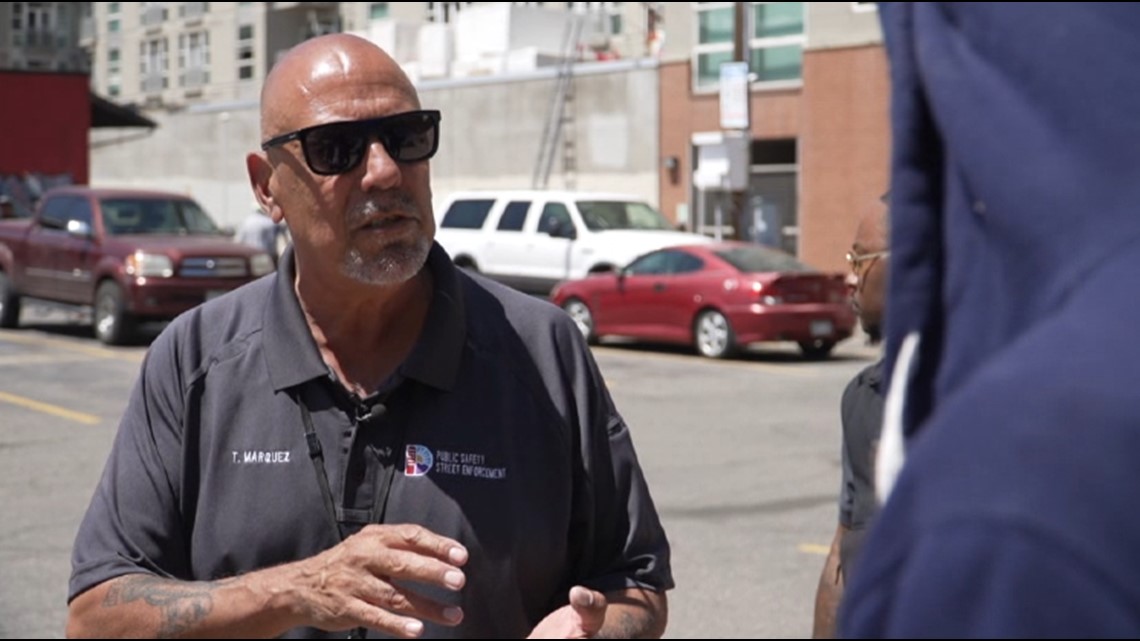
While Denver conducts sweeps of encampments, this team does not participate in that, and even has rules that don’t allow them to touch any belongings. They say having the ability to write tickets keeps that open as a tool, but it's not one that they’ve ever chosen to use.
"They’re just going to move down the street instead of actually knowing that there’s some type of help. There’s some type of outreach," said Brown.
Each team carries Narcan with them to help reverse the effects of drugs if they find someone who’s overdosed. When we were out with the team, they got a call that two other team members revived someone. They aren’t called to respond to situations through 911 dispatch, but can call for backup with police or even the STAR program if they need a mental health clinician or paramedic.
In an alley off Lincoln Street behind a library, Marquez and Brown respond to a complaint filed that people are blocking an alley so garbage trucks can't get through. They find people who need help.

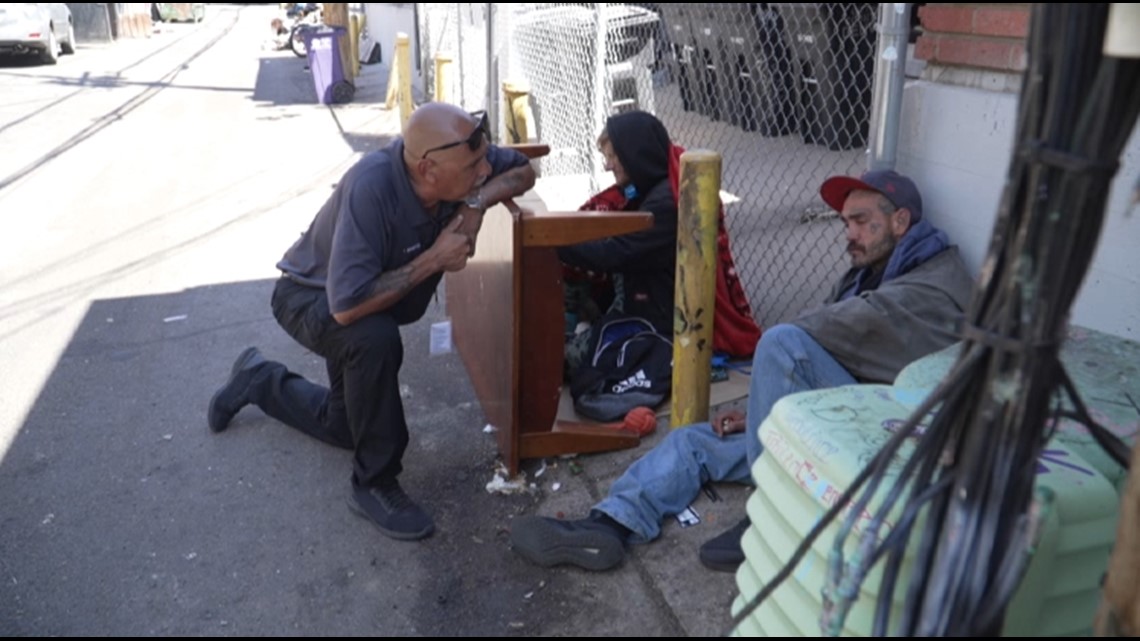
"You ready to make that move and get some help? All I got to do is make a call. It’s hard. I know it’s hard," said Marquez to the man sitting on the ground. "All I’ve got to do is make that call and we can get you started."
He offers him services through the AID Center in Denver. For now, the man rejects them. Marquez says he'll be back.
"It’s because I care about you man. That’s all," Marquez says.
SUGGESTED VIDEOS: Full Episodes of Next with Kyle Clark

